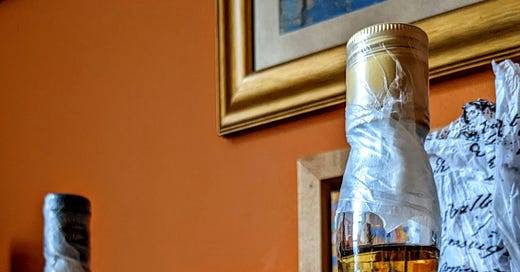Behold consumers shopping in an underground den without windows, but which has a door that opens towards daylight. Here they have shopped since Prohibition, and have their wallets and legs chained so that they cannot shop elsewhere, and can only buy the products placed before them in the Darkness of The Cave, being prevented by their chains from shopping beyond their confines.
“This seems a strange retail experience, and these seem to be strange consumers,” one thinks to one’s self. “They buy and taste only the products found in The Cave, and cannot experience anything else thanks to their chains.”
Consider then what will naturally follow when one of the consumers is temporarily liberated and is compelled suddenly to walk toward the open door, toward the daylight that beckons from private retailers, auctions, travel and the Internet.
Naturally they initially suffer sharp pains, and the glare of daylight is distressing as they emerge from The Cave and wander freely in an open marketplace. But once they grow accustomed to such freedom of choice, they become excited by the limited editions they’ve sipped, giddy about the collectibles they’ve cellared, and eager to tell their fellow consumers of the beauty and riches they’ve tasted outside The Cave…
Much to their dismay and confusion, however, relating such tales upon their return only reinforces the determination of their fellow consumers to remain within the confines of The Cave!
The eventual conclusion of the collective is that it is better not to even think of ascending towards daylight, and that if anyone else tries shopping outside The Cave they should be silenced. Because the unfortunate truth is that those who shop in Darkness are content with a limited selection, they are accustomed to indifferent service, and they are satisfied with sporadic inventory.
To paraphrase Socrates, they prefer the stores they know and understand.





